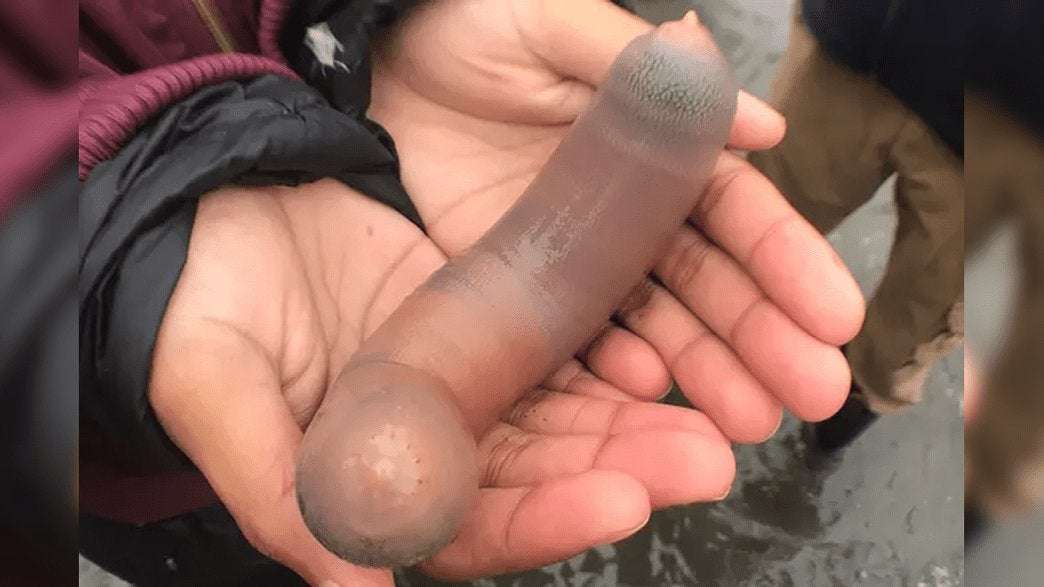Thousands of "penis fish" have washed up on the shores of Drakes Beach, California.
Urechis caupo, better known by its more phallic name for fairly obvious reasons, is a species of marine spoonworm that spends most of its life burrowed in the soft sediment of the sea bed. Also known as the "fat innkeeper worm" (these guys keep getting dragged by scientists) these worms can live under the sand for up to 25 years, minding their own business and feeding on plankton, bacteria, and other small particles that fall into their mucus traps.
However, these 10-inchers (they can even grow to around 30 centimeters in length) appear to have been disturbed, picked up from their quiet life, and strewn across a beach for as far as the eye can see (and never unsee, thanks to this horrendous photograph snapped by local resident David Ford).
“I had no idea what they might be... it went on for two miles,” Ford told Vice. And just to make you feel a little more sick: "I walked for another half hour and they were scattered everywhere. There were seagulls lined up the beach the whole way having eaten so much they could barely stand."
Ford reached out to Bay Nature, which runs a "Ask the Naturalist" column, and biologist Ivan Parr gave up the goods.
Urechis has four species of penis fish. U. caupo is the only species that is found in North America; the other three are found in Asia, where they are eaten as a delicacy.
The worms create u-shaped burrows in sand or mud, then secrete a slimy mucusy net that stretches from the entrance to its mouth to suck up food.
"Using contractions (peristalsis) to pump water through its burrow, the worm sucks plankton, bacteria, and other bits into this net," Parr explained. "When, like any vacuum, the net gets clogged, the worm slurps it all back into its mouth, taking in the particles it wants to eat and discarding the rest into the tunnel."
The animals get the name "innkeeper worm" because other creatures will often move in to the tunnels they have lovingly crafted. They get the name "penis fish" because they really, really look like a donger.
So, how did they end up getting dumped on the beach?
"We’re seeing the risk of building your home out of sand," Parr said. "Strong storms – especially during El Niño years – are perfectly capable of laying siege to the intertidal zone, breaking apart the sediments, and leaving their contents stranded on the shore."
People, as you'd expect, are big fans of the penis fish now that the penis fish beach party has made them aware of the creatures.
Or noticing similarities to their own unsolicited messages.
Mainly though, people think it's either a big metaphor for the end of the decade or a sign of the dickopalypse.
Even though it's really just some cute worms minding their own business, who've been put out of their homes by a storm. Poor little penis fish.

ignotus__ on June 22nd, 2022 at 13:35 UTC »
They eat these in Korea
eatcrayons on June 22nd, 2022 at 12:52 UTC »
“However, these 10-inchers (they can even grow to around 30 centimeters in length)”
Oh damn, they’re 10 inches long and can grow up to 11.8 inches? Wild.
samaramatisse on June 22nd, 2022 at 10:04 UTC »
Yes, in 2019.